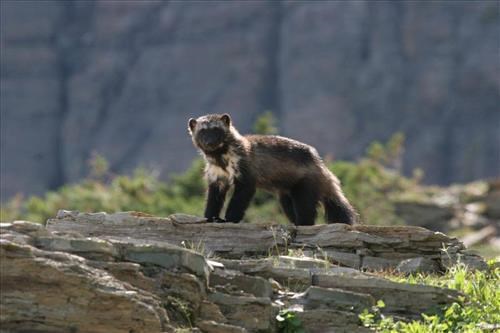
Iñupiaq Name: Qapvik Range: They can be found in North America as well as Eurasia. In North American, they are found mostly in Alaska and Canada. there are small populations in the Rocky Mountains, and some transient individuals may be seen in their parts of their historical range in the Upper Midwest. Habitat: Wolverines like to inhabit a variety of habitats within the arctic, subarctic and alpine zones, like the boreal forests/taiga and mountainous regions within. When found in the Lower 48, they tend to live at higher altitudes where they can find similar conditions to the arctic and subarctic habitats. They have large home ranges where males do not over lap with other males, but one male may overlap with several females. They are known to travel great distances within their ranges in search of food. Life History: Males and females become sexually mature after they are two years old. Breeding season is from May through August. Once mated and eggs are fertilized, the female keeps the eggs in the blastocyst stage until they become implanted during last fall to early winter. This process is called delayed implantation and this tactic allows the female to become pregnant when food supplies and physical health are best. Litters of 2-3 are born anytime between February and April. They are born blind and weigh less than 1 pound, but develop rapidly. By 9-10 weeks of age they are weaned. They become independent by the time they are 5-6 months and and reach adult size by mid-winder. Diet: Wolverines are not afraid to travel vast distances and are very opportunistic hunters and scavengers and will eat anything the kill or find. Year-round they will feed on small and medium animals like voles, squirrels, hares, birds, etc. During the winter months they tend to primarily rely on scavenging carrion. They have been known to take down adult caribou and moose, thought this is not common. Iñupiaq Cultural Use: Wolverine are commonly used for parka ruffs and trim and they are deeply embedded in fokelore due to their tenacity, endurance, and strength. |
Last updated: September 19, 2023
